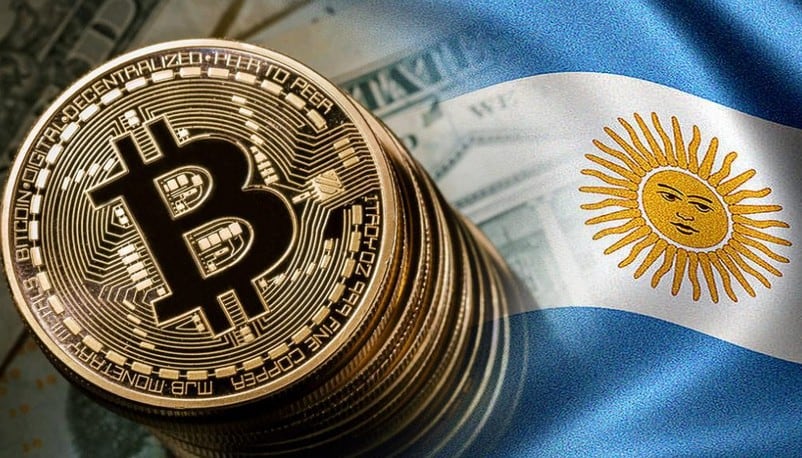Argentina’s President Alberto Fernandez has expressed his support for digital assets, claiming that there is no reason to oppose the new asset class. His view on this is opposed to that of the country’s, central bank head who has rejected the idea.

Fernandez reacted to a query regarding whether he would explore a central bank digital currency (CBDC) or even recognize Bitcoin as legal tender like El Salvador did earlier this year during an interview with a local media source, Caja Negra.
“I don’t want to go too far out on a limb […] but there is no reason to say ‘no,’” Fernando said, adding, “They say the advantage is that inflationary effects are substantially nullified.”
Inflation was a defining issue for Argentina’s previous president, Mauricio Macri’s, government. According to government data, 100 Argentine pesos would be worth 661 pesos now if Macri had not left office in 2019.
Despite Argentina’s strict currency controls, the current President highlighted that Bitcoin (BTC) is becoming more widely perceived as a hedge against inflation in the global economy. However, Fernandez cautioned that the bitcoin industry is still in its early stages:
“There is caution because of how unfamiliar it is, and because it is hard to understand how this fortune materializes. Many people in the world have these concerns, and that is why the project, or the system, has not yet expanded [more than it has]. But it is something to consider.”
Despite the president’s willingness to experiment with digital assets, Argentina’s central bank chief, Miguel Pesce, appears to be threatening a crackdown on the sector.
Pesce took aim at cryptocurrency during the Argentine Institute of Executive of Finance’s Digital Finance Forum on Tuesday, describing digital assets as a threat to economic stability and predicting stronger regulations for the sector.
Pesce stated during the event that BTC does not provide value to investors outside of short-term hype cycles. The central bank chief also compared Bitcoin to a commodity, stating that BTC “is not a financial asset” under the country’s National Securities Commission definition.
Pesce stated that he plans to “control the convergence of Bitcoin with the payment system and exchange market,” stating that the cryptocurrency “may be very damaging” to local financial stability.
The central bank wants to prioritize “preventing low-sophistication investors” from dealing in crypto assets while regulating the sector, according to Pesce:
“We are concerned that (cryptocurrencies) are used to generate undue profits on unsuspecting people.”
Pesce also criticized the idea of Argentina experimenting with a digital currency issued by the central bank (CBDC).
According to reports from May, retail cryptocurrency mining was booming in Argentina, as residents took advantage of cheap electricity and rising crypto prices.
In the same month, the central bank issued further cautions to Argentinians about the dangers of crypto assets.
Bitfarms, a Canadian mining company, announced its plans to expand in Argentina earlier this month, saying that its new facility in Argentina will cut production costs by 45 percent.
